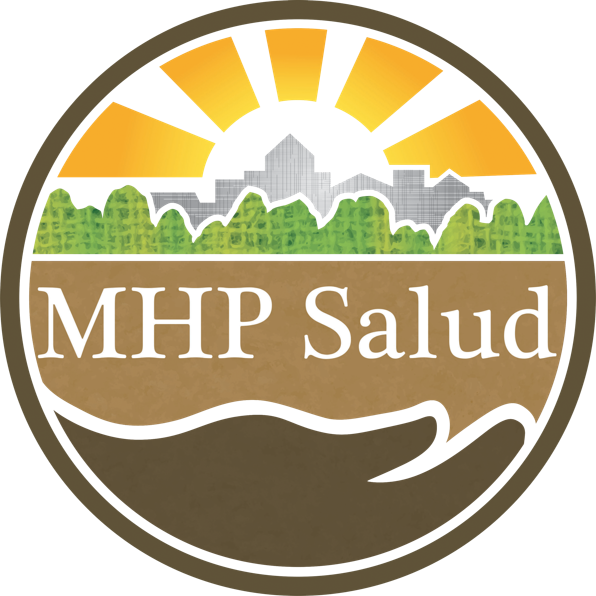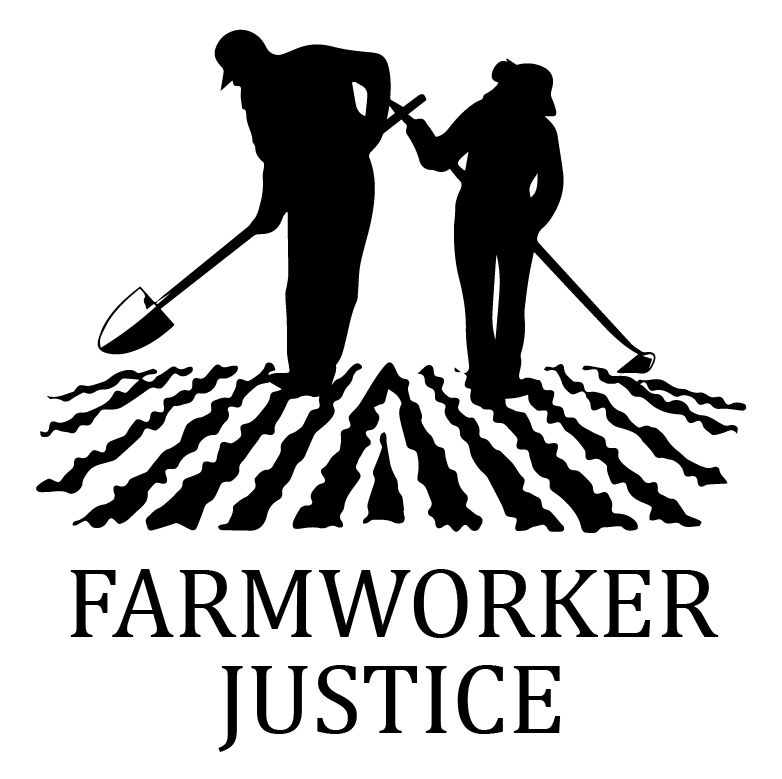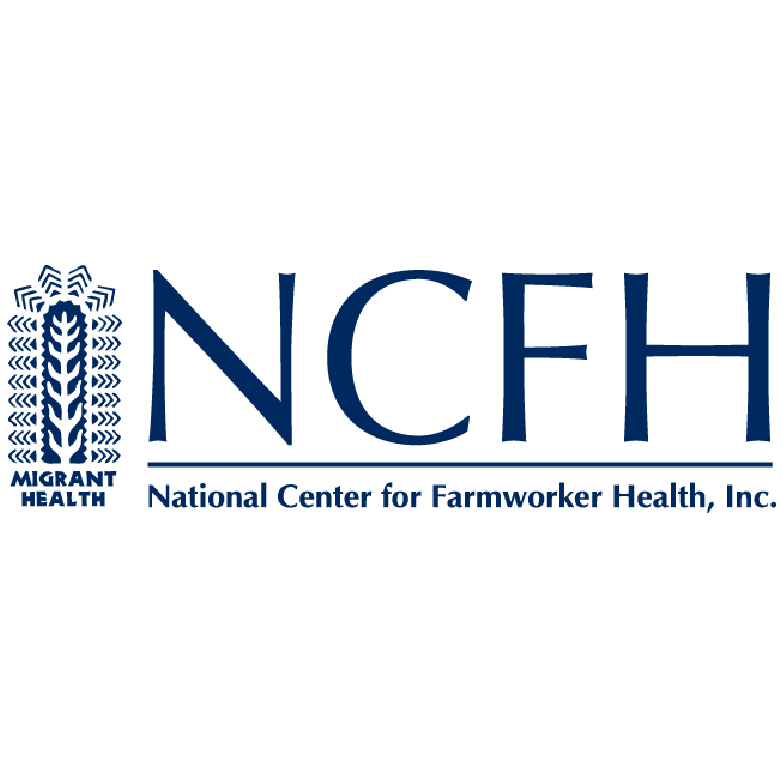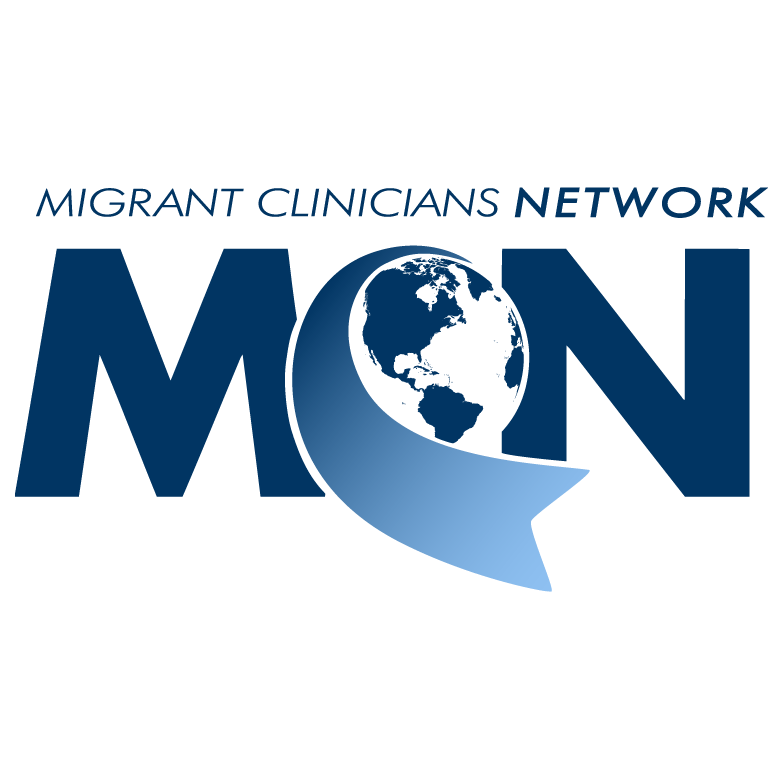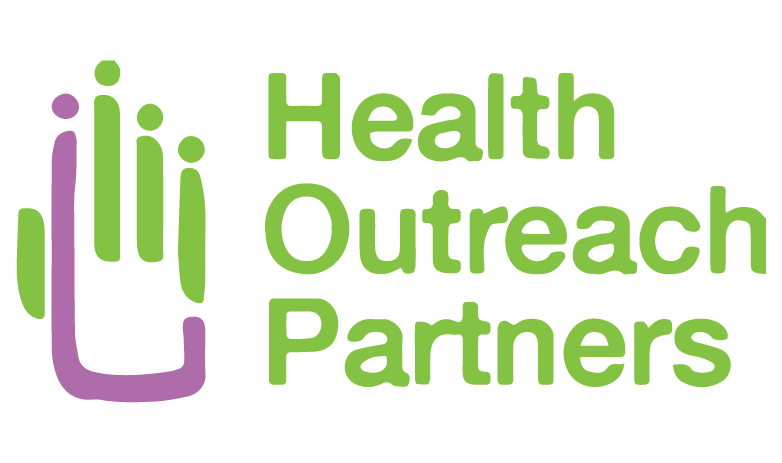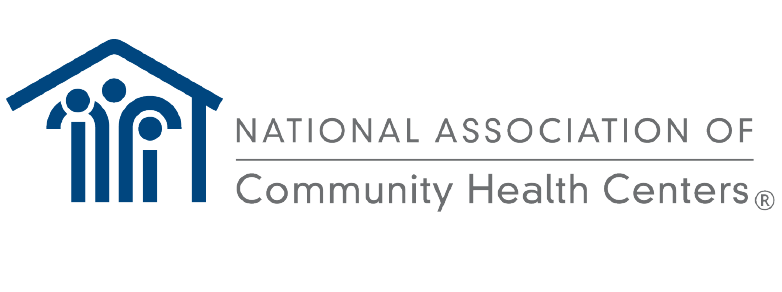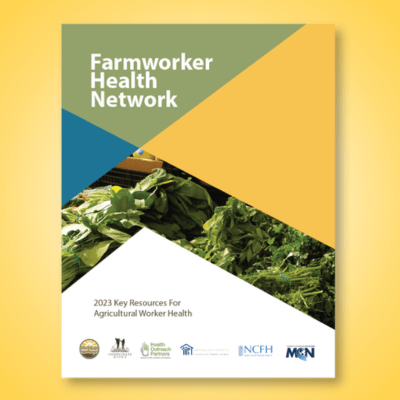Farmworker Health Network (FHN)

Migrant Clinicians Network is a member
of the Farmworker Health Network
The Farmworker Health Network (FHN) is comprised of six National Training and Technical Assistance Partners (NTTAPs) that focus on Migratory and Seasonal Agricultural Worker (MSAW) health and provide coordinated training and technical assistance to health centers that serve this special population. Each organization specializes in areas of focus such as clinical support, outreach services, policy analysis, and program development. The resources below are tools developed by each FHN organization that highlight their areas of expertise and support workforce development within HCs to increase access to healthcare for the MSAW population.
Download the 2023 Key Resources PDF Here
2023 Key Resources for Agricultural Worker Health
Environmental Health and Climate Change
Farmworkers and the Climate Crisis - Environmental Justice Symposium Summary Report - In May 2022, FJ hosted a two-day virtual symposium to discuss the impact of climate change on MSAW communities. Topics included heat stress, water access, and pesticide. Participants represented health centers, legal services organizations, environmental organizations, academic institutions, and community-based organizations. This report summarizes the issues discussed during the symposium as well as best practices and recommendations.
Health Care Access
Good Health is for You, Too - FJ created this resource for MSAWs to encourage the use of health center services. The comic book provides basic information about health centers, including cost, eligibility, and services. There is also a space on the back page for health centers to include their local information. This resource is available in English, Spanish, and Haitian Creole.
Diabetes Prevention
Juntos Nos Movemos - FJ partnered with the National Migrant and Seasonal Head Start Collaboration Office to create a curriculum for MSAW families to promote exercise and nutrition. The training-of-trainer curricula is for outreach staff to provide parents with tools to increase their movement and promote healthy eating. The units of the curricula cover movement, healthy eating, micronutrients and macronutrients. The activities and resources were developed with MSAW parents to ensure that they are culturally appropriate and responsive to their questions and concerns. Resources include a recipe book, a card game, and worksheets. The curricula and materials are available in English and Spanish, with some resources also available in Mam and Mixteco.
Organizational Self-Care
The Organizational Self Care Assessment Tool provides health center leadership with a tool to assess how the organization integrates and operationalizes self-care practices for health care workers, reflects on current strategies and can help identify gaps or areas for further exploration. The tool can be used to prioritize areas to implement and outline barriers or challenges that may come up. Areas covered include Policies and Practices, Employee Supervision and Mentoring, Training and Professional Development, Organizational Leadership and Structure, and Organizational Sustainability.
The Organizational Self Care Resource is a guide to implementing the Assessment Tool and is based on data from a nationwide assessment that HOP conducted in 2021. It was developed to better understand how self-care is being implemented into the workplace and provides strategies and examples of self-care practices.
COVID-19
Our podcast, “The Covid-19 Pandemic and What it Taught Us: Collective Trauma and Moving Forward” brought together subject matter experts in areas such as healthcare, mental health, education, leadership, the disproportionate impact on Black, Indigenous and People of Color (BIPOC ) and other underserved communities in conversation with HOP staff to highlight important topics for recovery and resiliency.
The COVID-19 tipsheet named ‘How Community Health Care Workers Can Maximize COVID-19 Vaccination Outreach Efforts’ is a reference tool for clinicians and CHWs that outlines best practices and strategies to address common questions about vaccine hesitancy and misinformation. Both of these resources are useful for health clinic staff and when planning.
Social Determinants of Health
The Helping Health Centers Address Disability and Chronic Disease Discrimination Tip Sheet designed in collaboration with the National Center for Medical-Legal Partnership provides resources and definitions to better prepare health center staff to identify and address touchpoints where discrimination can occur and be addressed during health center encounters. Specific tools for adults and young people can help assess how discrimination can be happening and how health centers can leverage their knowledge and resources in the community to support their patients.
Outreach
The Outreach Reference Manual is a comprehensive reference for outreach programs to improve program effectiveness and sustainability, tackling such topics as cultural competency, health education, recruitment and retention, needs assessment, planning, and evaluation. The variety of information included is not just relevant for outreach staff, but for everyone working to improve access in the community.
Clinician Support
The Witness to Witness (W2W) program at MCN, provides psychosocial support that enhances wellbeing and bolsters resilience. The program is based on the Witnessing Model developed by Dr. Kaethe Weingarten in the 1990s. The premise of the W2W program is that when we are overexposed to stories of hardship, stress, and trauma we can experience stress ourselves. Whether these stories are told by friends, family members, co-workers or people we serve, witnessing the pain and suffering of others can take a toll on us physically and emotionally. W2W began as a program that supported clinicians working with MSAWs.
Over the years, it has expanded its offerings to serve MSAWs and their families directly. MSAWs experience physical stress during work as a result of the pace and strenuousness of farmwork as well as emotional stress from family separations, documentation status concerns, and the insecurity of work opportunities. As a result of poor wages, MSAWs routinely struggle with poverty and, because of their mobility and often due to language and cultural differences, they often lack community support, all of which limit the resources they can access to support their wellbeing.
Clinical Education in Migrant Health
MCN provides high quality continuing education to health care providers serving MSAWs and other underserved populations. MCN’s comprehensive clinical education program helps to develop excellence in practice, grow clinical leadership, address emerging issues in clinical care, and disseminate best practice models. To best serve individual needs, MCN has devised an array of educational services that can be tailored to clinicians’ unique requirements. Come explore what we have to offer.
Continuity of Care and Bridge Case Management for Mobile Patients
MCNs Health Network Continuity of Care and Bridge Case Management for Mobile Patients
MCN’s Health Network assures continuity of care and treatment completion by providing comprehensive case management, medical records transfer, and follow-up services to address the unique challenges faced by mobile patients with ongoing health needs. Health Network develops relationships with the mobile patient, helps mitigate or remove barriers to care, and utilizes its worldwide network to help mobile patients get the care they need regardless of where the patient is moving. Health Network has proven to be an easily modifiable patient navigation system for health centers with application in disease surveillance and treatment management for any number of injuries, illnesses, or care needs among mobile populations with any health care condition.
Social Determinants of Health
According to the World Health Organization (WHO), the social determinants of health (SDOH) are the “conditions in which people are born, grow, live, work and age.” CHWs are public health workers who are trusted members of the communities they serve or have an unusually close understanding of them. Community Health Workers and the Social Determinants of Health is a free brief that presents general information on SDOH, the available tools for data collection on SDOH, and the role that CHWs may play in implementing SDOH programs.
Chronic Disease
MHP Salud’s Chronic Disease Resources are designed for health center staff, including CHWs, to use when working with their communities, including MSAWs and their families. These tools provide educational information to help individuals reduce health complications related to diabetes and other chronic health conditions. MHP Salud’s Providing Diabetes Control Education and Management resource, also available in Spanish, includes a downloadable complete guide and individual guides for eye care, oral care, and foot care. The Chronic Disease Management Tool, available in English and Spanish, can be printed and shared with patients in the community to help them manage their diabetes. MHP Salud’s The Role of CHWs in Addressing Diabetes guide can be used among health center staff to identify the role CHWs have in addressing diabetes self-management and prevention in their communities.
Mental Health among MSAW
Mental Health is crucial to an individual’s overall health, and the mental health needs of MSAWs are not well understood. MHP Salud distributed a National Migrant and Seasonal Agriculture Workers Mental Health Survey in April 2021 to better understand the mental health needs of the MSAWs served by Migrant Health Centers. MHP Salud also compiled Recommendations for Mental Health and Underserved Latino Populations, with a Special Focus on MSAWs.
The Guide to Migratory and Seasonal Agricultural Worker Mental Health Equity provides health center staff with important resources, information, and tools to address the unique mental health needs of their MSAW patients. MSAWs face unique challenges related to their living and working conditions, creating barriers to self-care. The Self-Care for Farmworkers Advice from your CHW is a resource available in English and Spanish that CHWs can take into the field to improve self-care among MSAW populations.
Governing Board Resources
NACHC’s Health Center Governance Program offers useful and timely governing strategies to empower health center boards as they navigate the complex health care environment. Board member training, online videos and modules, and essential resources are available. Below are sample resources:
- Health Center Board Roles Video (English/Spanish)
This short video, available in English and Spanish, provides an overview of the roles and responsibilities of health center boards. The video highlights where boards can turn to for additional information on compliance with requirements from the Health Resources and Services Administration’s (HRSA) Health Center Program and for good governance
- Governance Guide for Health Center Boards (English/Spanish)
The Governance Guide reflects the latest effective governance practices for nonprofit boards and is available in English and Spanish. The Governance Guide also addresses major areas of board responsibility and contextualizes them, where appropriate, in the HRSA’s Health Center Program Compliance Manual and relevant state and federal laws.
- The Fundamentals for Health Center Boards and Tips for Health Center Boards for Evaluating the Sliding Fee Discount Program
Health center boards are required to adopt, review and evaluate at least once every three years, and, as needed, approve updates to the Sliding Fee Discount Program as noted in Chapter 19: Board Authority in the HRSA’s Health Center Program Compliance Manual. The video Sliding Fee Discount Program: The Fundamentals for Health Center Boards provides an overview of the fundamentals of the Sliding Fee Discount Program. Tips for Health Center Boards for Evaluating the Sliding Fee Discount Program is a short eLearning course that provides tips on how boards can work with the health center CEO to evaluate and approve updates to it. It contains sample data and questions a board may wish to ask as part of this process.
For more information, contact trainings@nachc.com or go to https://www.nachc.org/
Increase Access to Care
The Increase Access to Care (IAC) for Ag Workers Program at NCFH was launched in response to the Ag Worker Access Campaign, to assist health centers in accurately identifying, classifying, and reporting their MSAW worker patients in Uniform Data System (UDS). This comprehensive program now includes a national virtual network comprised of health centers, Health Center-Controlled Networks, and Primary Care Associations working together toward the mutual goal of increasing access to care for MSAWs and their families. These IAC tools are available to support increase access to care efforts, as well as more resources from the Ag Worker Access Campaign Toolbox:
- Increase Access to Care (IAC) Program Pillars: designed to help health centers implement the key pillars needed to establish a foundation for setting specific goals to positively impact increased access to care efforts for MSAWs.
- Increase Access to Care (IAC) Q&A Packet: Frequently Asked Questions and Answers gathered from past IAC workshops, webinars, and trainings.
- Ag Worker Identification Digital Training Video: designed to assist front desk staff in accurately identifying, registering, and reporting their MSAW patients in the UDS.
Governance Tools
NCFH’s commitment to board development for Migrant Health Centers has been an important component of our work for years, especially in increasing the recruitment, orientation, and successful integration of MSAW patients into health center boards. These Governance resources and more are available on our Health Center Toolbox to support board training and leadership development:
- Key Online Resources for Training Health Center Board Members: provides guidance to health centers on incorporating online learning into board governance training plans.
- Spanish E-Learning Governance Modules on Financial Oversight: translated low-literacy Spanish modules from NCFH, in collaboration with NACHC, for board training (also available in English).
- Board Finance Training Discussion Guides: developed in English and Spanish to accompany the E-Learning Governance Modules and help facilitate group discussions during board training.
- Module 1: The Boards’ Role in Financial Oversight (English / Spanish)
- Module 2: Reading and Understanding the Balance Sheet (English / Spanish)
- Module 3: Reading and Understanding the Income Statement (English / Spanish)
- Module 4: Understanding the Importance of Cash Flow (English / Spanish)
- Module 5: Key Financial Performance Indicators (English / Spanish)
Resource Hubs
NCFH’s commitment to board development for Migrant Health Centers has been an important component of our work for years, especially in increasing the recruitment, orientation, and successful integration of MSAW patients into health center boards. These Governance resources and more are available on our Health Center Toolbox to support board training and leadership development:
- Diabetes Resource Hub
- Mental Health Resource Hub
- SDOH Resource Hub
- Infectious Disease Resource Hub
- Language Access Resources
